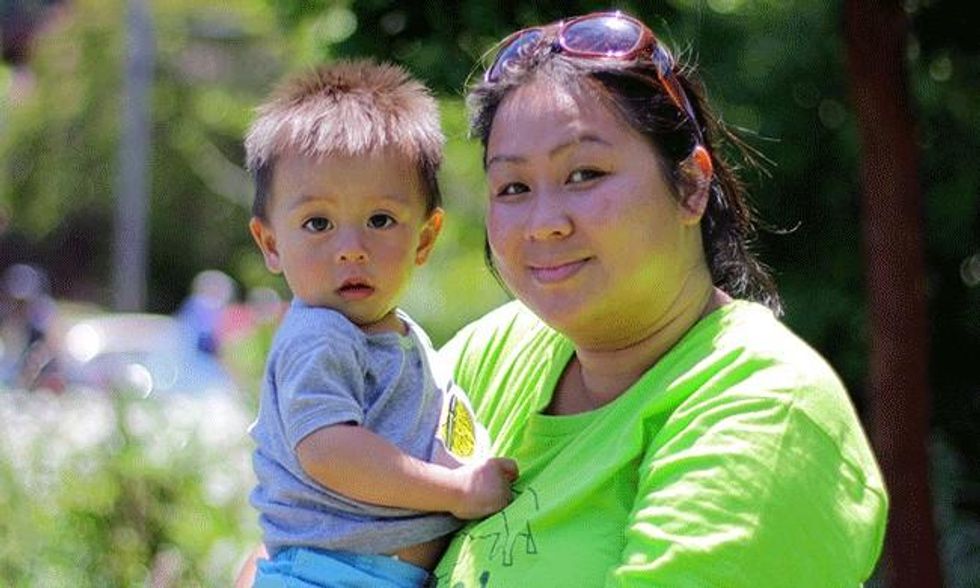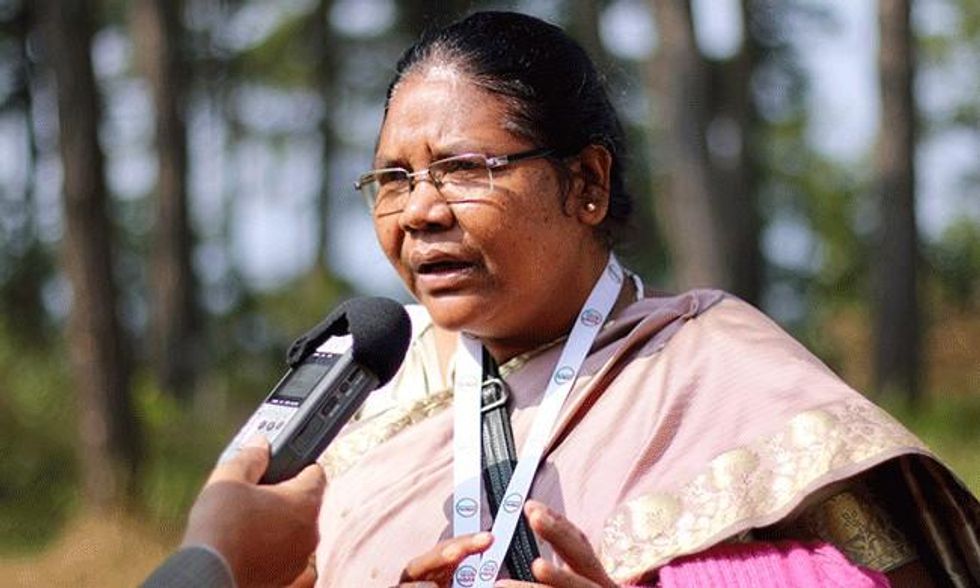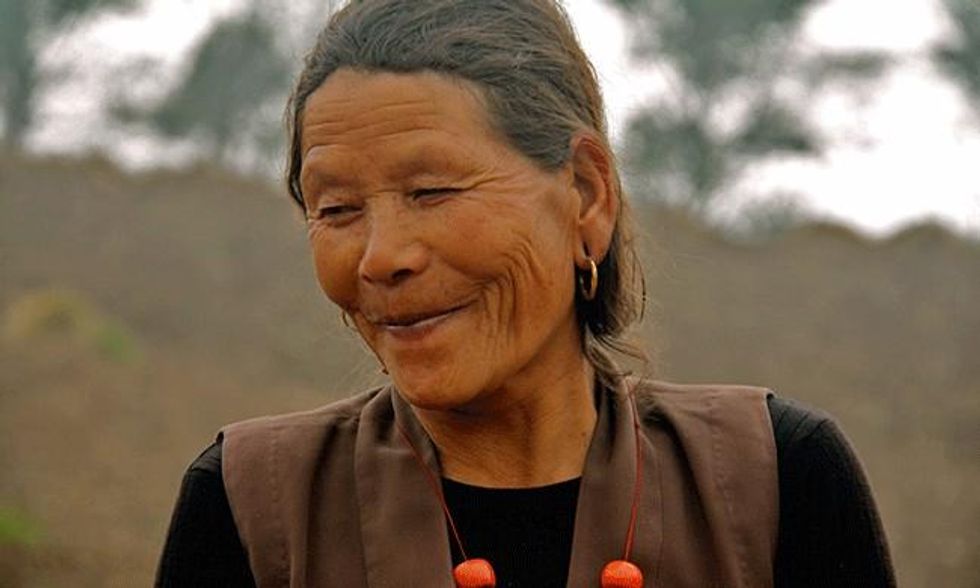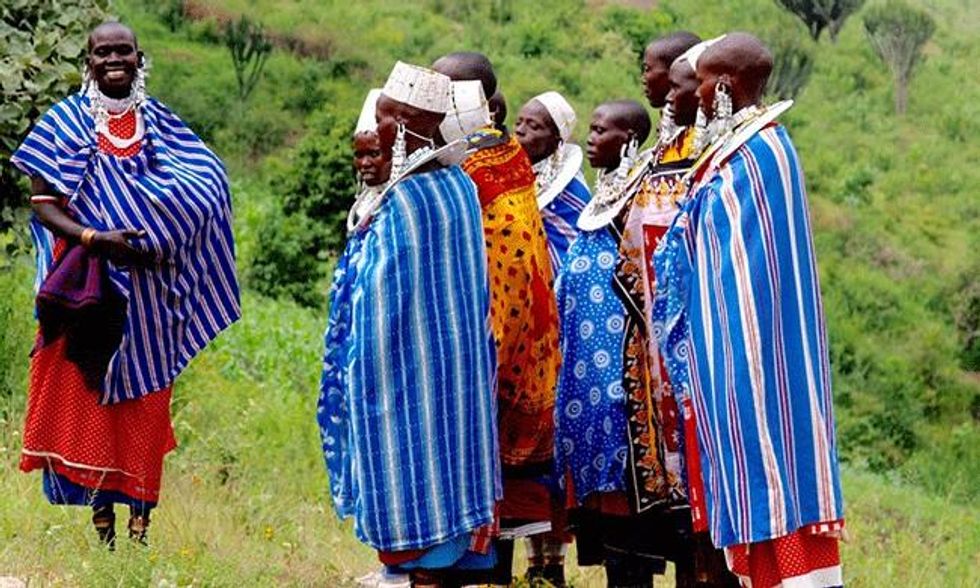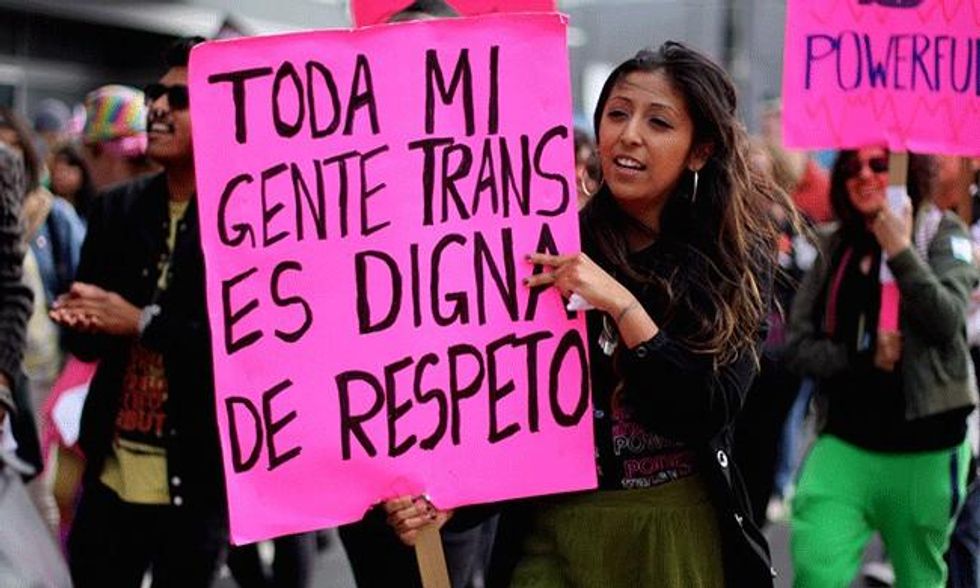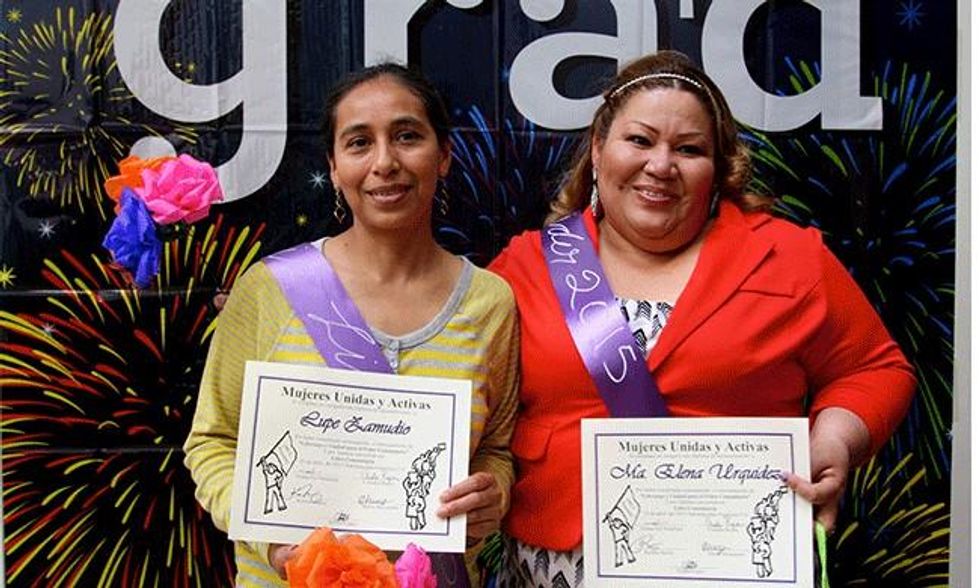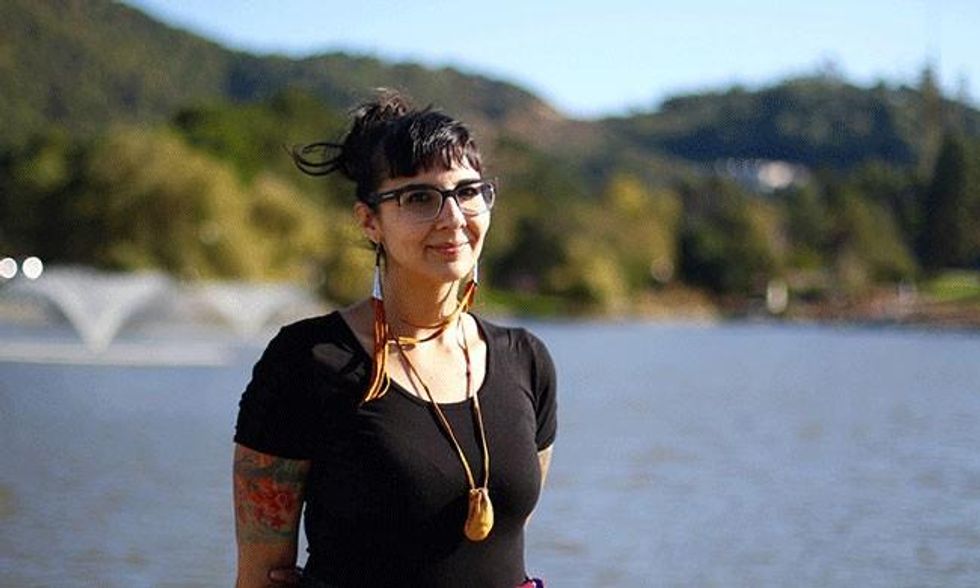In her essay "There is No Hierarchy of Oppressions," black lesbian feminist poet Audre Lorde wrote: "I have learned that oppression and the intolerance of difference come in all shapes and sizes and colors and sexualities; and that among those of us who share the goals of liberation and a workable future for our children, there can be no hierarchies of oppression."
Around the world, women's movements have long recognized the wisdom of that thought, which emphasizes the way social movements benefit by recognizing the intersections between different forms of oppression. In their letter "Women for Women in Ferguson," the National Domestic Workers Alliance--a network of organizations representing nannies, home care workers, and housekeepers--stood in solidarity with the women of Ferguson, Missouri, who were affected by police brutality.
"As domestic workers, as women, we know that dignity is everyone's issue and justice is everyone's hope," the letter reads. "We organize to create a world where every single one of us, domestic workers, black teens, immigrant children, aging grandparents--all of us--are treated with respect and dignity."
In the face of growing corporate power, land grabs, economic injustice, and climate change, women's movements offer a paradigm shift. They have redefined leadership and development models, connected the dots between issues and oppression, prioritized collective power and movement-building, and critically examined how issues of gender, race, caste, class, sexuality, and ability disproportionately exclude and marginalize.
In the face of growing corporate power, land grabs, economic injustice, and climate change, women's movements offer a paradigm shift."People of color within LGBTQ movements; girls of color in the fight against the school-to-prison pipeline; women within immigration movements; trans women within feminist movements; and people with disabilities fighting police abuse--all face vulnerabilities that reflect the intersections of racism, sexism, class oppression, transphobia, ableism, and more," wrote Dr. Kimberle Crenshaw, executive director of the African American Policy Forum, in a recent opinion piece. "Intersectionality has given many advocates a way to frame their circumstances and to fight for their visibility and inclusion."
Women of color have unleashed powerful media campaigns and actions by connecting identity and its relationship with structural racism and institutional power. #DalitWomenFight, a powerful media initiative, links sexual violence faced by Dalit women with the deeply entrenched and institutionalized structure of caste in India. And in the United States, evocative actions taken by the #SayHerName campaign highlight how police brutality disproportionately affects black women.
Whether it is indigenous women in the Amazon fighting corporate polluters and climate change or undocumented Latina domestic workers advocating for worker rights and dignity in California, women's groups and networks are making links between unbridled capitalism, violence, and the erosion of human rights and destruction of the Earth.
Here are just a few stories that show how they've done this.
Flipping the script
To mark this year's International Women's Day, the women's wing of La Via Campesina--an international movement uniting millions of peasants, small producers, landless farmers, and indigenous communities--is calling for action against capitalist violence all over the world.
"Capitalist violence is not only the violence that is directly inflicted upon women; it is also an integral part of a social context of exploitation and dispossession that is characterized by the historical oppression and violation of the basic rights of women peasants, farmers, and farmworkers, landless women, indigenous women, and black women," notes the organization.
Dayamani Barla, a tribal journalist from Jharkhand, India, would agree. Barla led a powerful movement to stop the world's largest steel company, ArcelorMittal, from displacing thousands of indigenous farming communities. Barla's struggles are rooted in cultural survival as big dams, mining, and extractive industries have displaced, dispossessed, and impoverished millions of tribal people across India. Barla firmly believes that territorial sovereignty is key for achieving food sovereignty. "Globalization, in fact, has given rise to a kind of fascism," she notes.
Barla has flipped the script on traditional models of "development" by defining it from an indigenous worldview. "We are not anti-development," she said. "We want development, but not at our cost. We want development of our identity and our history. We want that every person should get equal education and healthy life. We want polluted rivers to be pollution free. We want wastelands to be turned green. We want that everyone should get pure air, water, and food. This is our model of development."
In 2012, Barla was jailed for leading a protest that created a roadblock and since her release has faced ongoing legal hurdles and threats for her fight against land grabs. These threats are emblematic of increasing criminalization and repression facing women human-rights defenders today.
In 2013, pastoral Maasai women braved violence and threats to stop a land grab east of the famed Serengeti National Park in Loliondo. These land struggles have catalyzed women's leadership in the traditionally male-dominated Maasai community and illuminated the vital role women play in protecting Maasai culture and identity.
"We are building unity among indigenous women," said Siketo, an elder Maasai woman, in a 2014 interview in Tanzania. "Without unity, we cannot fight and we need to learn from struggles of other communities." The Pastoral Women's Council, an organization led by Maasai women, is building the leadership of women in the Loliondo land struggles and advocating for the education and economic empowerment of girls and women in their community.
Women's movements are also bringing to the forefront that which is alarmingly invisible: women's paid and unpaid labor as caregivers, farmers, domestic workers, natural resource managers, and human rights defenders.
Mujeres Unidas y Activas (MUA), a grassroots organization of Latina immigrant women in the San Francisco Bay Area, has a dual mission of promoting personal transformation and building community power for social and economic justice. In 2013, MUA members played a key role in the passage of the historic California Domestic Worker Bill of Rights. Immigrant women of color are a large portion of domestic workers, who risk exploitation, racism, and poor working conditions. Katie Joaquin, campaign director of the California Domestic Workers Coalition, views this as an international struggle that is critical for the leadership of women.
MUA's approach epitomizes how an organization can connect the dots between issues and movements--from winning justice for domestic workers to fighting for immigration reform and ending deportations to interacting with global grassroots social justice movements.
Audre Lorde concluded her essay by expressing a sentiment that would resonate with MUA members: "I cannot afford to choose between the fronts upon which I must battle these forces of discrimination, wherever they appear to destroy me. And when they appear to destroy me, it will not be long before they appear to destroy you."


